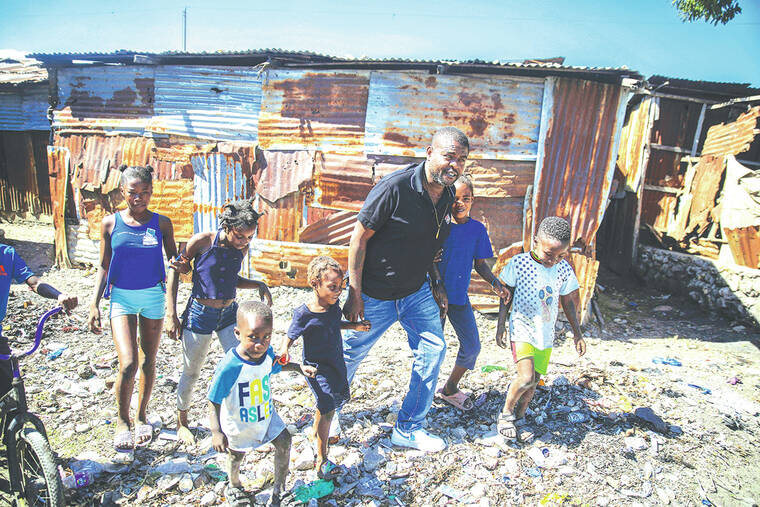Why is Haiti so chaotic? Leaders used street gangs to gain power. Then the gangs got stronger
Haiti’s prime minister has said he will resign, bowing to international pressure to save his homeland gripped by violence and controlled by heavily armed gangsters.
Ariel Henry made the announcement hours after officials, including Caribbean leaders and U.S. Secretary of State Antony Blinken, met in Jamaica to discuss a solution to halt Haiti’s spiraling crisis and agreed to a joint proposal to establish a transitional council.
What is going on in Haiti?
It’s easy to blame this latest spasm of violence in the West’s first free Black republic on longstanding poverty, the legacy of colonialism, widespread deforestation, and European and U.S. interference.
However, a series of experts told The Associated Press that the most important immediate cause is more recent: Haitian rulers’ increasing dependence on street gangs.
Haiti hasn’t had a standing army or a well-funded and robust national police force for decades.
United Nations and American interventions have come and gone. Without a solid tradition of honest political institutions, Haitian leaders have been using armed civilians as tools for exercising power.
Now, the state has grown fatally weak and gangs are stepping in to take its place.
Gang leaders, surreally, hold news conferences. And many see them as future stakeholders in negotiations over the country’s future.
How did Haiti get here?
A 1990s embargo was imposed after the military overthrew President Jean-Bertrand Aristide. The embargo and the international isolation devastated the country’s small middle class, said Michael Deibert, author of “Notes From the Last Testament: The Struggle for Haiti,” and “Haiti Will Not Perish: A Recent History.”
After a U.S.-backed U.N. force pushed out the coup’s leaders in 1994, a World Bank-sponsored structural adjustment led to the importation of rice from the U.S. and devastated rural agricultural society, Deibert said.
Boys without work flooded into Port-au-Prince and joined gangs. Politicians started using them as a cheap armed wing. Aristide, a priest-turned-politician, gained notoriety for using gangsters.
In December 2001, police official Guy Philippe attacked the National Palace in an attempted coup and Aristide called on the gangsters to rise from the slums, Deibert said.
“It wasn’t the police defending their government’s Palais Nacional,” remembered Deibert, who was there. “It was thousands of armed civilians.”
“Now, you have these different politicians that have been collaborating with these gangs for years, and … it blew up in their face,” he said.
How did weak foreign intervention hurt Haiti?
Many of the gangs retreated in the face of MINUSTAH, a U.N. force established in 2004.
Rene Preval, the only democratically elected president to win and complete two terms in a country notorious for political upheaval, took a hard line on the gangs, giving them the choice to “disarm or be killed,” said Robert Fatton, professor of government and foreign affairs at the University of Virginia.
After his presidency, subsequent leaders were at best easy on the gangs and at worst tied to them, he said.
Fatton said every key actor in Haitian society had their gangs, noting that the current situation isn’t unique, but that it has deteriorated at a faster pace.
“For the last the three years, the gangs started to gain autonomy. And now they are a power unto themselves,” he said, likening them to a “mini-Mafia state.”
“The autonomy of the gangs has reached a critical point. It is why they are capable now of imposing certain conditions on the government itself,” Fatton said.


